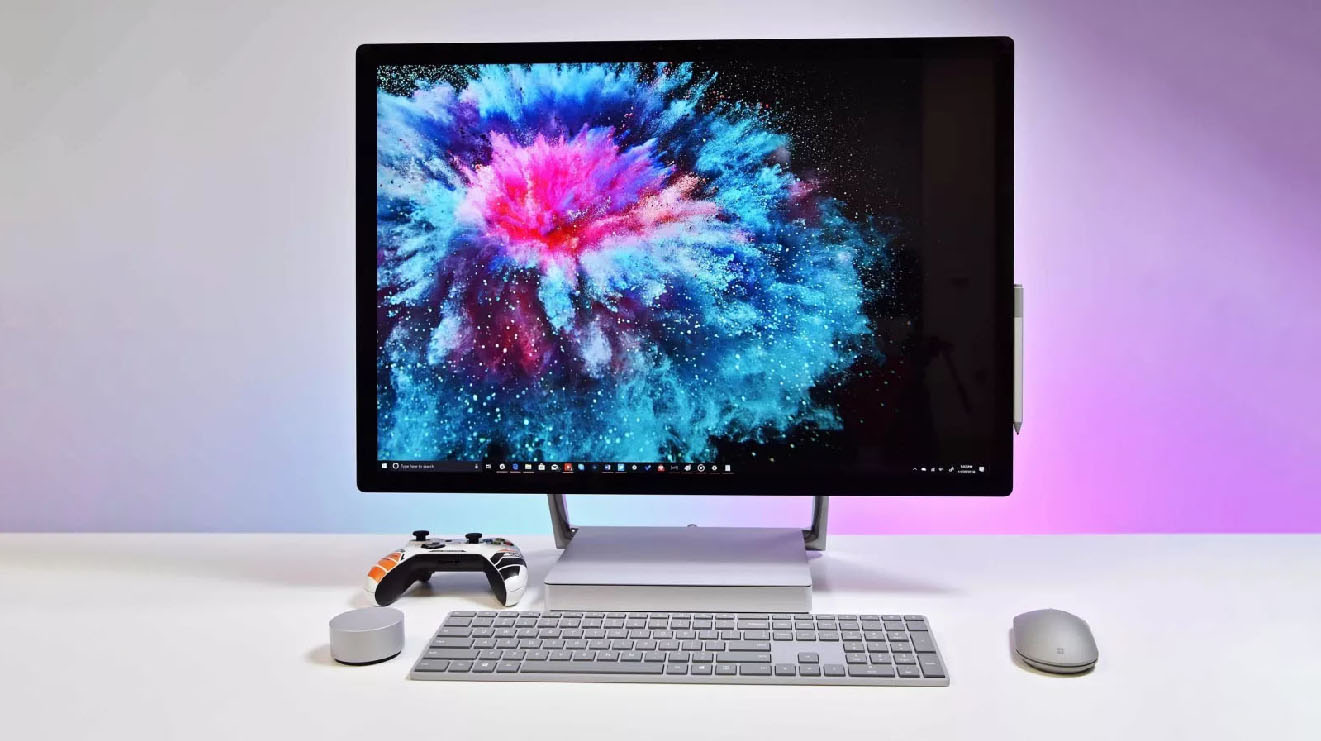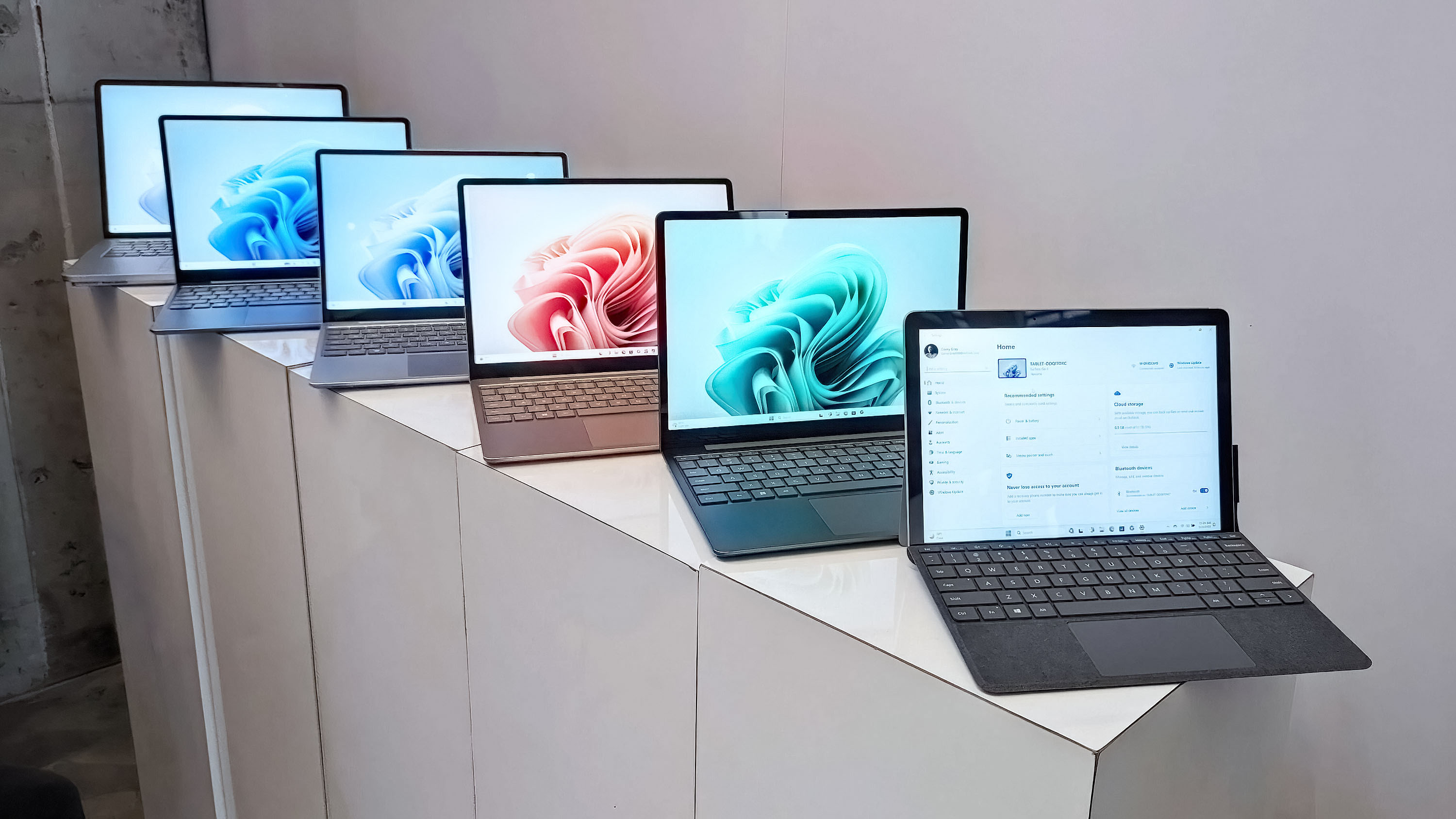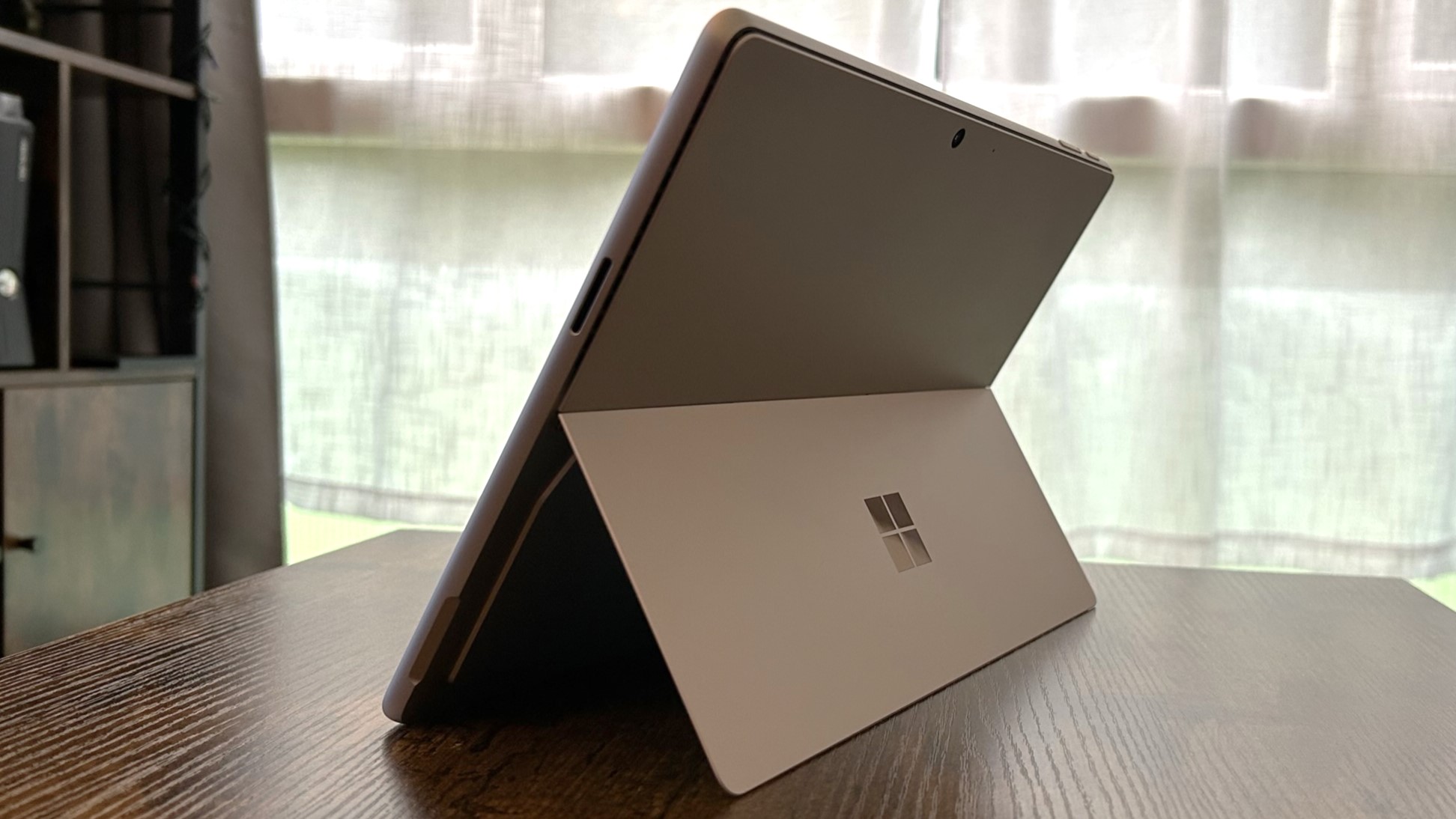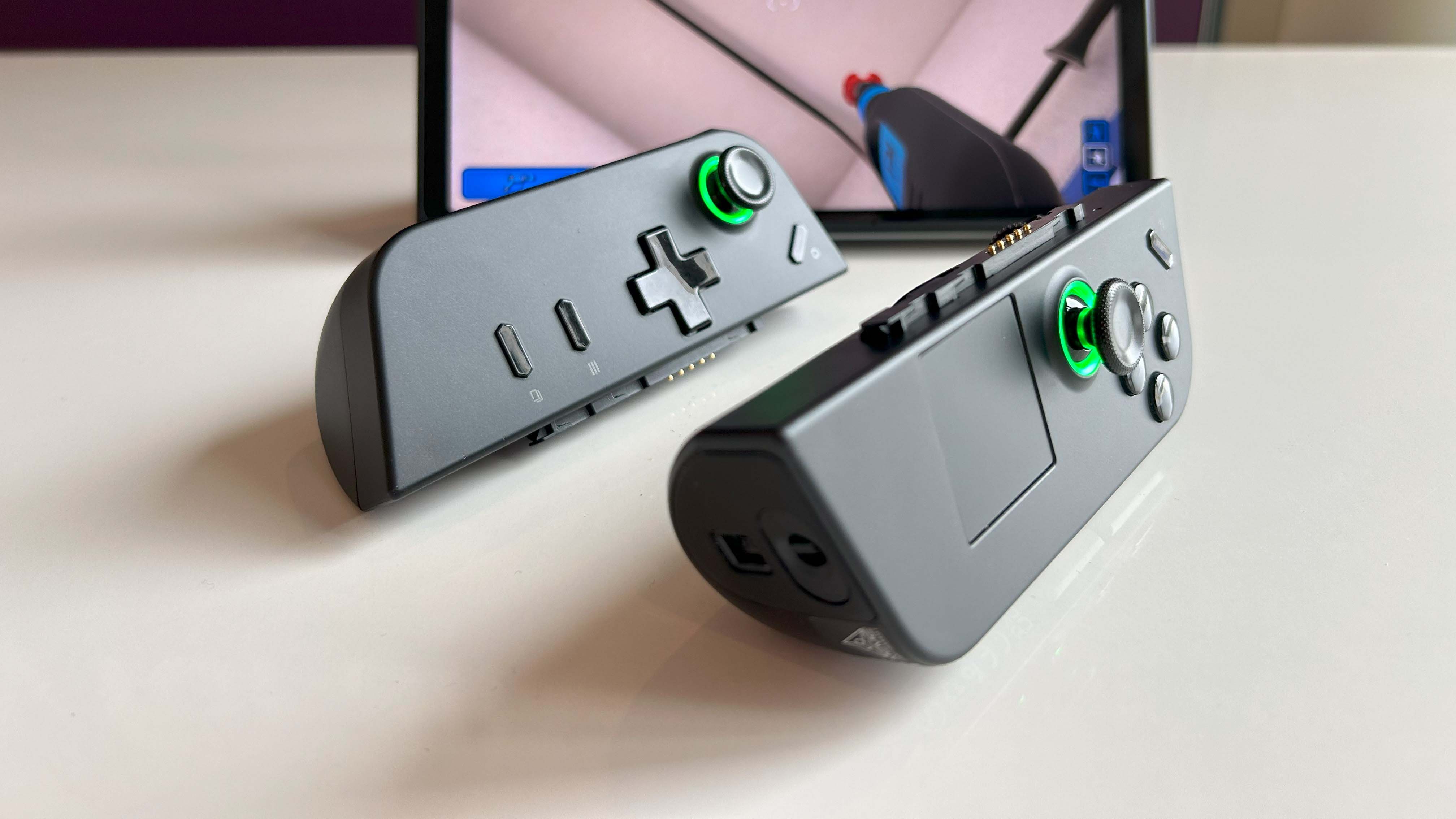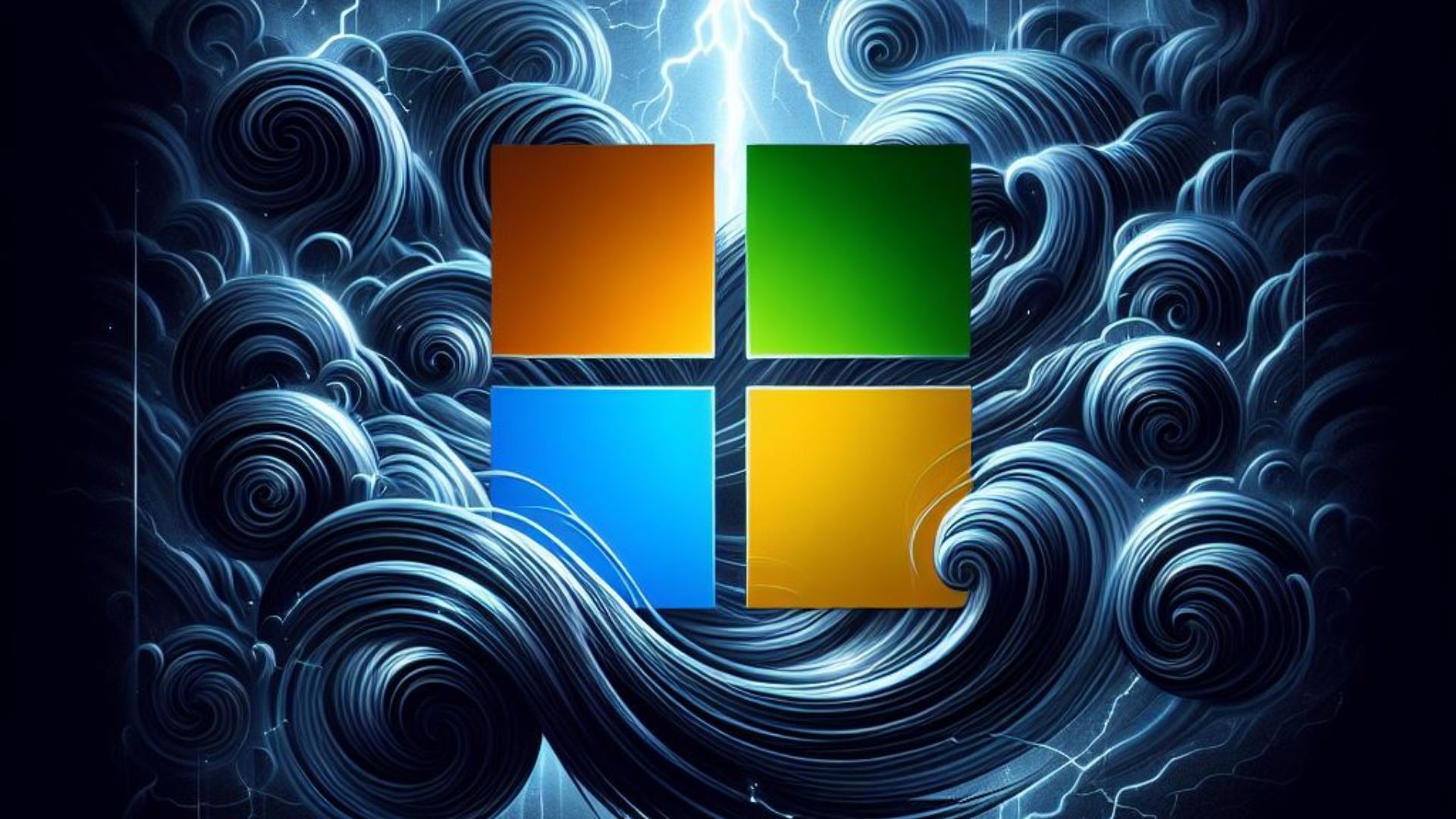If this is the future of Surface, I see why Panos Panay left Microsoft
Why stick around for a vanilla family of devices?
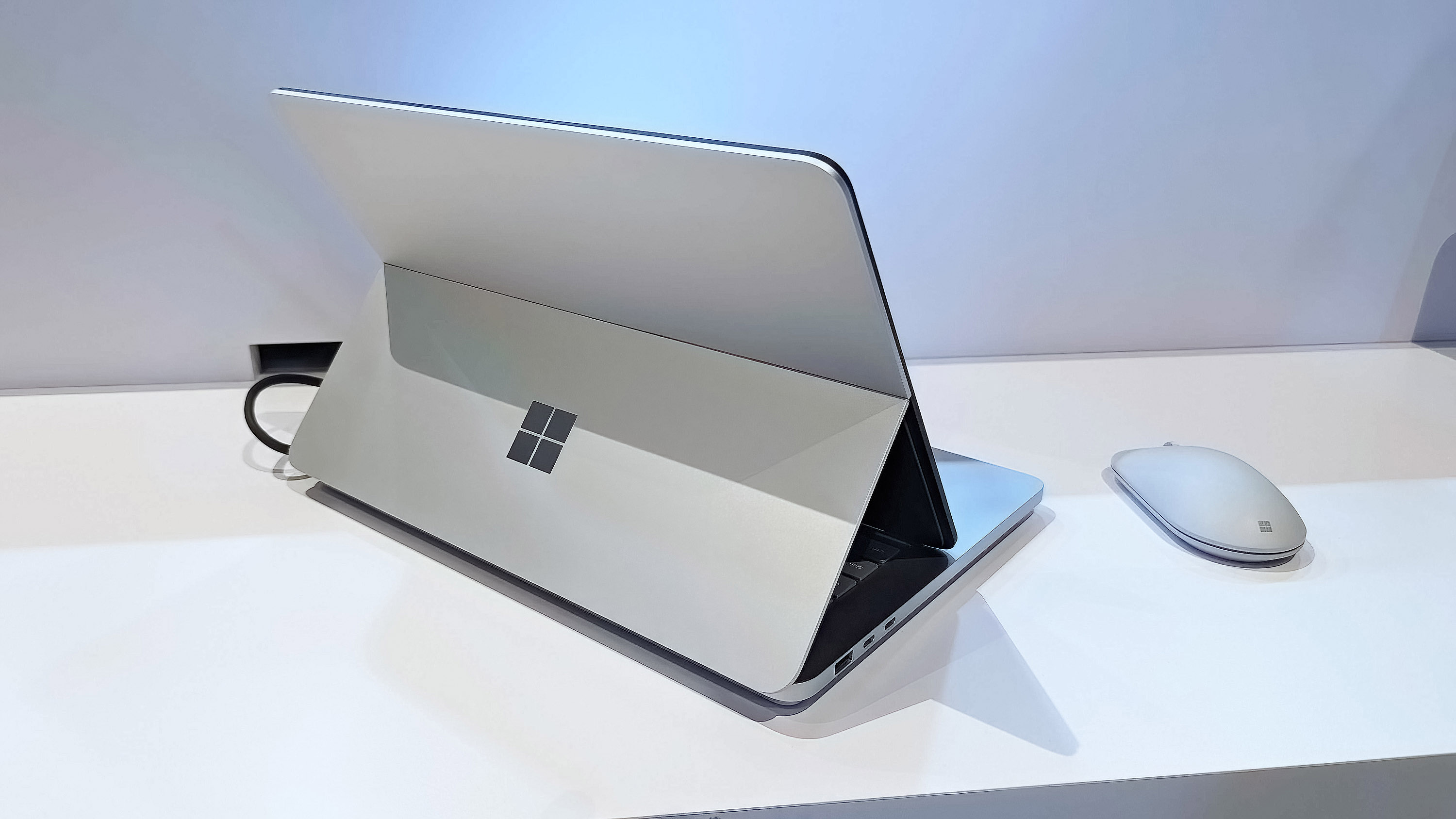
All the latest news, reviews, and guides for Windows and Xbox diehards.
You are now subscribed
Your newsletter sign-up was successful
Microsoft held its "special" event for Surface and AI this week. The company told people to keep their eyes out for big announcements. My eyes are still looking, as I imagine so are many sets of eyes from Surface enthusiast. This week's showcase gave us little to be excited about from Microsoft's hardware division. In fact, it was so lackluster that it's easy to see why Panos Panay left the company.
It's easy to write an editorial when you're angry. Passion flows from you through a keyboard. It's difficult to write when you're apathetic. That's how I am right now. I can't even muster outrage over the dull and disappointing presentation Microsoft didn't even both to live stream.
What's Surface without experimentation?
Panay's departure from Microsoft seemed abrupt, but as more details come into focus, it's not surprising. This week, a report revealed that Panay left his role as EVP of Experiences & Devices due to cutbacks, layoffs, and device cancelations. Microsoft reportedly plans to ditch its efforts to make niche or experimental hardware.
The tech giant once planned to release a new generation of Surface Headphones, but those are no longer on the way. Our Senior Editor Zac Bowden detailed that a Surface Studio All-in-One was in the works at one point, but that it also won't see the light of day. A new Surface Duo has been axed as well. Bowden explained that Microsoft has "no plans to ship a new version of either product line for the foreseeable future."
Instead, Microsoft plans to focus on Surface Pro, Surface Laptop, Surface Laptop Go, Surface Laptop Studio, Surface Hub, and Surface Go. Those are all lovely devices. I'm sure the Surface Laptop Studio 2, Surface Laptop Go 3, and Surface Go 4 will be solid devices for what they are, but they aren't exciting.
One of the primary purposes of Surface is to innovate, to push OEMs to create new devices. Microsoft would show a new idea or showcase a form factor with a device and then companies like HP, Lenovo, and Razer would follow. I question if that's still a goal of Microsoft's when it comes to Surface. Panay, who was as passionate about niche devices and experimenting as anyone, leaving the company suggests that's the case.
Surface has served its purpose
In our Surface Pro 9 review, Bowden called the device "a decade of form factor perfection." I fully agree with his claim, and he does an excellent job illustrating the strength of the 2-in-1 in his review.
All the latest news, reviews, and guides for Windows and Xbox diehards.
When Microsoft introduced the first Surface Pro, the PC space was drastically different than it is now. Microsoft burst onto the scene with a 2-in-1 featuring a detachable keyboard and a kickstand, memes be damned. After a few generations, the Surface Pro lineup hit its stride. Later, the device led to emulation by Dell, Apple, and many other companies.
The Surface Pro lineup is probably the best example of a Surface device doing its job. Surface hardware doesn't always introduce a new form factor, but it often does. Even when it doesn't, Surface devices generally do something different than most of their competitors. Look no further than the Surface Book's detachable display or the Surface Duo's screens for evidence of Microsoft pushing limits.
Experimental devices don't always work out. For example, Microsoft shifted away from the Surface Book's design to the Surface Laptop Studio. While the latter still isn't a traditional laptop, it is less out there than the book. But there was a time when that was okay. Microsoft could try something with Surface and spark passion among creators or other PC makers. Those days may be over.
What's a computer?
Many of us mocked Apple's "what's a computer" advertisements a few years ago, and rightfully so. That question would have been better posed in a Surface ad. The history of Surface includes detachable screens, foldable phones, and moveable All-in-Ones. Now, Microsoft appears content to crank out overpriced PCs with older specs.
The Surface that turned heads for over a decade is dead.
Sean Endicott
Without looking, can you even name all the devices Microsoft announced yesterday? Heck, two of them weren't even unveiled during the event! The Surface Go 4 for Business and Surface Hub 3 were announced basically as footnotes on a Microsoft page summarizing this week's news. When that page went live, there wasn't even a post about the Surface Hub 3, just a video.
Before this week's event, I worked on a piece titled "Surface has run its course. It's time for Microsoft to move on." I didn't publish it, however, as I wanted to see if any announcements from the Surface and AI event changed my mind. To the contrary, the presentation solidified that the Surface that turned heads for over a decade is dead.
Maybe that was the plan all along? Microsoft wanted to push OEMs to make unique PCs, and we see that regularly now. The newly announced HP Spectre Foldable is just of many PCs pushing the boundaries of computing. The Legion Go and ROG Ally are also the types of devices I imagine Microsoft wants to see on the market. Now, companies make those, and Microsoft doesn't need to invest time and money into R&D.

Sean Endicott is a news writer and apps editor for Windows Central with 11+ years of experience. A Nottingham Trent journalism graduate, Sean has covered the industry’s arc from the Lumia era to the launch of Windows 11 and generative AI. Having started at Thrifter, he uses his expertise in price tracking to help readers find genuine hardware value.
Beyond tech news, Sean is a UK sports media pioneer. In 2017, he became one of the first to stream via smartphone and is an expert in AP Capture systems. A tech-forward coach, he was named 2024 BAFA Youth Coach of the Year. He is focused on using technology—from AI to Clipchamp—to gain a practical edge.
